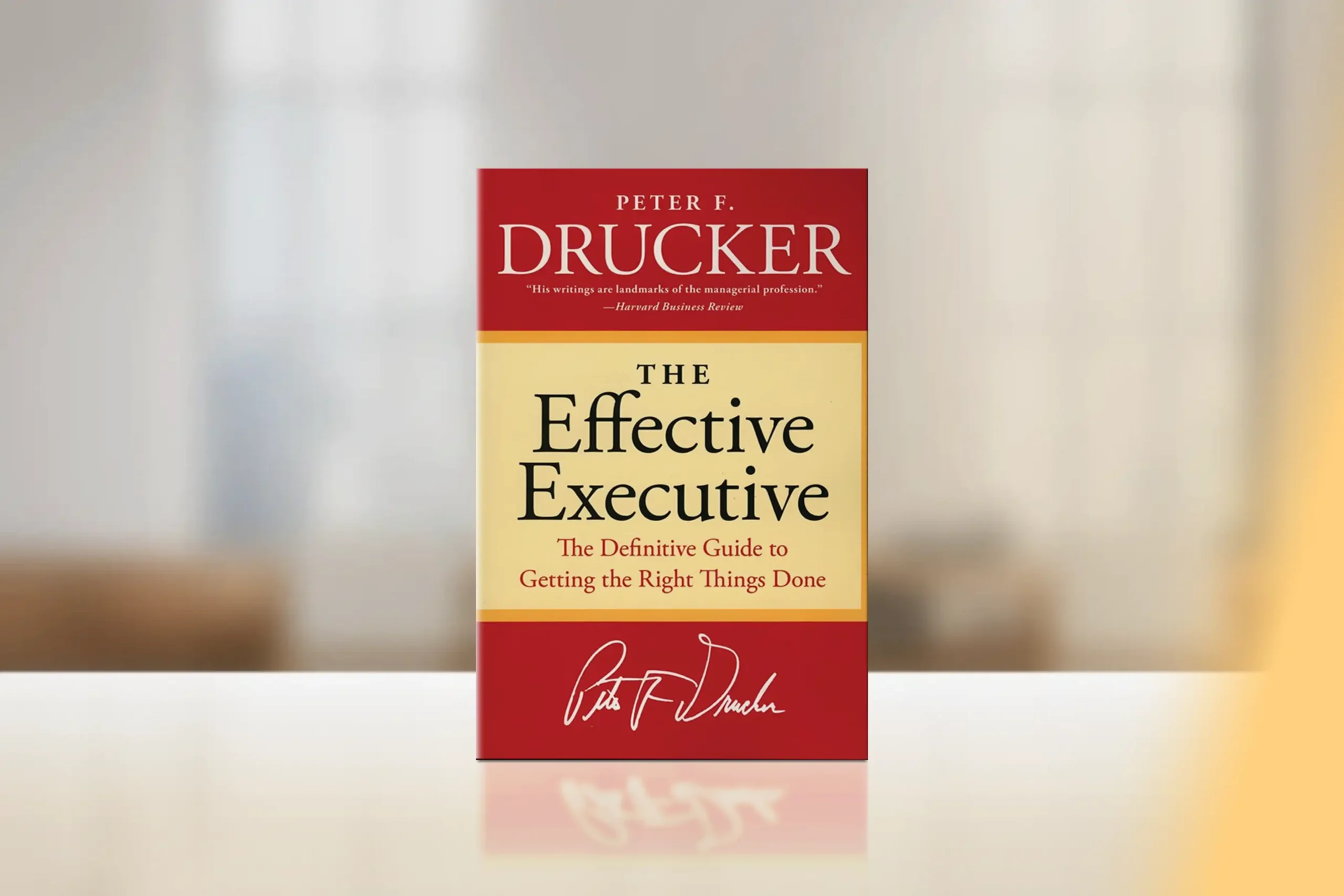Hate your job? Life’s too short to stay stuck in a role that drains your energy and dulls your passion. If you’re feeling unfulfilled, there are clear signs to switch jobs that can guide you toward a better path. Let’s break down 7 signs it’s time to walk away — and take control of your career and happiness.
Inside this article:
TL;DR
With almost 80% of the global workforce disengaged and over 40% experiencing daily work stress, widespread job dissatisfaction isn’t just personal—it’s epidemic. The data reveals chronic stress, lack of recognition, stagnant growth, and cultural misalignment as key warning signs. When these problems persist, they’re not temporary setbacks but systemic issues justifying career change, especially since engaged workforces show 23% higher productivity and significantly better wellbeing outcomes. Source

1. You Dread Going to Work Every Day
That heavy feeling when your alarm goes off isn’t just about being tired—it’s your inner wisdom telling you something’s wrong. When you consistently wake up with anxiety or a sense of dread about the day ahead, your body is responding to chronic dissatisfaction. This goes far beyond temporary burnout or the occasional rough week.
Notice how your energy shifts throughout the week:
- Monday mornings feel like a mountain to climb rather than an opportunity to engage
- Sunday evenings become tainted with anxiety about the approaching workweek
The weight of Sunday scaries becomes unbearable when it’s every weekend, not just during particularly challenging periods. Your subconscious mind is already preparing for escape—that’s why the dread feels so visceral and real. This level of persistent stress can significantly impact your overall wellbeing, as explored in depth in “Emotional Wellbeing: Managing Stress, Anxiety, and Burnout.”
Key Takeaway: If the thought of going to work consistently fills you with anxiety or dread, your body is telling you what your mind might be afraid to acknowledge. This chronic dissatisfaction is a clear signal that something fundamental needs to change.

2. You’re Constantly Stressed, Anxious, or Exhausted
When work stress follows you home, seeps into your relationships, and affects your sleep, it’s no longer just a job challenge—it’s a life problem. Chronic workplace stress doesn’t stay contained within office walls; it transforms how you feel about everything else. The scale of this issue is staggering: 41% of employees globally report experiencing “a lot of stress” daily, according to Gallup’s 2024 research across 160 countries.
The physical and emotional toll manifests in several ways:
- Mental exhaustion that doesn’t improve with rest or weekends
- Physical symptoms like headaches, tension, or digestive issues that correlate with work stress
- Difficulty sleeping due to racing thoughts about work problems
- Irritability or emotional numbness that affects your personal relationships
What starts as “just a stressful period” can evolve into a chronic state that impacts your health, relationships, and overall life satisfaction. For comprehensive strategies on managing this challenge, “Effective Stress Management: Your Path to a Healthier, Balanced Life” offers valuable insights for both immediate relief and long-term balance.
Key Takeaway: When work stress consistently spills into your personal life and affects your physical or mental health, it’s not a badge of honor—it’s a warning sign that the cost of staying is too high.

3. You Feel Undervalued or Unappreciated
You’ve just finished a major project that exceeded expectations and saved your company significant money. The leadership meeting concludes with thanks to “the team” while your specific contributions remain invisible. Sound familiar?
There’s something particularly soul-crushing about pouring your energy into work that goes unnoticed or unrewarded. When your contributions consistently fly under the radar, when you’re passed over for opportunities you’ve earned, or when feedback feels non-existent, it’s natural to question your worth.
This undervaluation shows up as:
- Your ideas being overlooked or dismissed in meetings and planning sessions
- Promotions or raises passing you by despite strong performance
- Recognition going to others for work you contributed to significantly
- Your manager not investing time in your development or career conversations
Feeling unappreciated isn’t just about ego—it’s about professional growth and human dignity. When your workplace doesn’t see or value your contributions, it limits not just your current satisfaction but your future potential. You deserve to work somewhere that recognizes your talents and invests in your development. Building confidence in your professional worth is crucial during this process, which is why “Building Confidence and Self-Esteem: Simple Steps for Lifelong Empowerment” can be particularly valuable when navigating undervaluation.
Key Takeaway: Feeling consistently undervalued is a sign that you’re not in the right environment to thrive. Your talents and contributions deserve recognition and investment, not indifference.

4. You’ve Stopped Growing or Learning
Ask yourself these diagnostic questions:
When did you last feel genuinely challenged at work? If you can’t remember or it was months ago, your role has become too comfortable. Challenge is the catalyst for growth.
Can you name three new skills you’ve developed this year? Professional stagnation happens gradually, then all at once. If skill development has flatlined, so has your career trajectory.
Do you still get excited about learning in your field? When your curiosity dies, it’s often because your environment has stopped nurturing it.
Career stagnation feels like being stuck in quicksand—the longer you stay, the harder it becomes to move. When your role no longer challenges you, when learning opportunities disappear, and when you find yourself going through the motions, you’re not just missing out on professional development—you’re losing ground while others advance.
The most successful professionals are those who continuously evolve, and when your current role doesn’t support that evolution, you’re essentially moving backward. Understanding how to cultivate this mindset becomes essential—“The Power of Lifelong Learning: Strategies for Continuous Growth” provides a roadmap for maintaining momentum even when your current environment doesn’t support it.

5. You Don’t Align With the Company’s Values or Culture
Cultural misalignment creates a constant internal battle that’s exhausting to fight every single day.
What alignment looks like:
- Speaking up without fear of judgment
- Feeling energized by company decisions
- Natural fit with communication styles
- Pride in how people are treated
- Authenticity feels safe and welcomed
What misalignment feels like:
- Constantly censoring you in meetings
- Cringing at leadership decisions
- Exhaustion from code-switching to fit in
- Ethical discomfort with business practices
- Feeling like an outsider
Values misalignment isn’t something you can simply adapt to or overcome with time—it creates ongoing internal conflict that affects your job satisfaction and personal integrity. For deeper insight into how values alignment affects career satisfaction, “Being True to Yourself: A Guide to Authentic Living” explores the importance of maintaining integrity across all areas of life.

6. You Fantasize About Quitting (Often)
Those daydreams about walking into your boss’s office and handing in your resignation aren’t just idle thoughts—they’re your mind rehearsing for freedom. When you regularly catch yourself imagining life without your current job, planning exit scenarios, or feeling relief at the thought of leaving, your subconscious is processing what your conscious mind might not be ready to admit.
These fantasies aren’t signs of weakness or disloyalty—they’re your mind’s way of exploring possibilities and preparing for change. When these thoughts become frequent rather than occasional, they’re telling you something important about your readiness to move on. The book “So Good They Can’t Ignore You” by Cal Newport, the author offers valuable perspective on how to transition from fantasy to strategic career planning by building skills that create genuine opportunities.

7. You’re Actively Looking for a Way Out
Check the behaviors that sound familiar:
- You’re updating LinkedIn during work hours – optimizing your profile while on company time
- You’ve memorized the job boards in your field – checking them has become routine
- You’re suddenly interested in “catching up” with former colleagues – networking with intention
- You research companies you admire – following their hiring patterns and culture
- You feel emotionally checked out – going through motions rather than engaging fully
When you find yourself regularly engaging in these behaviors, you’ve already mentally left your current role. This represents the transition from passive dissatisfaction to active planning for change. You’re not alone: Around 30% of employees say they’re likely to switch employers in the next 12 months.
Trust this instinct. Your subconscious mind has already begun the process of detaching from your current situation and preparing for transition. This isn’t disloyalty or restlessness—it’s your professional instincts guiding you toward better alignment and opportunity. To maximize your transition success, “The Power of Networking: Building Connections That Matter” provides strategic approaches to building the relationships that can open doors to your next opportunity.

8. The Benefits of Finding Work You Love
The emotional and professional cost of staying too long in the wrong job compounds over time, but the benefits of finding work you truly love create a positive ripple effect that transforms every area of your life. When you align your career with your values, strengths, and aspirations, you’re not just changing jobs—you’re changing how you experience life itself. Research confirms this transformation: engaged employees show 23% higher productivity, 23% higher profitability, and 51% lower turnover rates.
Enhanced Life Satisfaction and Energy
When you love what you do, work becomes a source of energy rather than a drain. You’ll find yourself looking forward to Monday mornings, feeling engaged during the day, and finishing work with a sense of accomplishment rather than exhaustion. This renewed energy spills into your personal life, improving your relationships, hobbies, and overall wellbeing.
Accelerated Professional Growth
In the right role, your natural talents shine and your motivation to learn skyrockets. You’ll develop skills more rapidly, take on meaningful challenges, and build a reputation for excellence because you’re operating in your zone of strength and passion. This creates a virtuous cycle where opportunities seek you out rather than you constantly searching for them.
Improved Physical and Mental Health
The chronic stress of hating your job takes a real toll on your body and mind. When you transition to fulfilling work, you’ll likely experience better sleep, reduced anxiety, improved immune function, and greater emotional resilience.
Financial Rewards Follow Passion
Contrary to the myth that following your passion means sacrificing financial security, people who love their work often earn more over time. When you’re engaged and excelling, promotions, raises, and opportunities naturally follow. Your enthusiasm and competence become magnetic to employers and clients.
Deeper Sense of Purpose and Impact
Work you love typically aligns with your values and allows you to make a meaningful contribution. This sense of purpose provides resilience during challenges and creates a deeper satisfaction that money alone cannot provide. You’ll feel like your work matters, not just for your paycheck but for the impact you’re making.
If several of the warning signs in this article resonate deeply with your experience, recognize that staying in the wrong job isn’t just professionally limiting—it’s preventing you from experiencing these profound benefits that come with career alignment.
Next Steps: Planning Your Next Move
Recognizing these signs is the first step, but taking action requires a strategic approach. You don’t need to quit tomorrow without a plan, but you do need to honor what these signals are telling you about your current situation and your future potential.
Immediate Actions (This Week)
- Clarify what you want in your next role by listing your non-negotiables and ideal working conditions
- Assess your financial runway to understand how much time you have to make a strategic transition
- Begin documenting your accomplishments to update your resume and LinkedIn profile
Short-term Planning (Next Month)
- Update your professional materials with recent achievements and skills
- Reach out to three people in your network for informal conversations about career opportunities
- Research companies and roles that align with your values and career goals
- Set up job alerts on relevant platforms to stay informed about opportunities
Long-term Strategy (Next 3-6 Months)
- Expand your network through industry events, online communities, or professional associations
- Develop or strengthen skills that are relevant to your desired career direction
- Seek support from career counselors, mentors, or trusted colleagues who can provide guidance and references
Remember, you’re not quitting—you’re choosing growth. You’re honoring your professional development, your personal values, and your right to find work that energizes rather than drains you. The courage to leave what’s not working is the same courage that will lead you to what will.
Your career should contribute to your life satisfaction, not detract from it. When the signs are clear, trust them. Your future self will thank you for having the wisdom to move on and the courage to pursue something better.
Further reading
“Designing Your Life” by Bill Burnett and Dave Evans
Offers practical design thinking methods for creating a fulfilling career and life, perfect for those ready to make intentional changes.
“Pivot” by Jenny Blake
Provides a systematic approach to career transitions, helping you move from your current role to one that better aligns with your goals and values
“The Start-Up of You” by Reid Hoffman and Ben Casnocha
Teaches how to adapt, take risks, and transform your career in today’s rapidly changing job market.
“Switchers” by Dawn Graham
Specifically addresses career change strategies, offering insights for professionals looking to transition between industries or roles.
“So Good They Can’t Ignore You” by Cal Newport
Challenges the “follow your passion” advice and provides a strategic approach to building a career you love through skill development and value creation.





